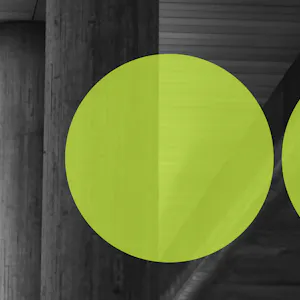Emerging threats

We support organisations striving to build a trustworthy, safe online environment where users can engage authentically in their communities.
Cross-sector corporatesWe support international government organisations and NGOs working to provide infrastructure or improve the capabilities, security and resilience of their nation.
International programmes and developmentWe support commercial organisations operating in a digital world, seeking to protect their reputation and prevent business disruption caused by cyber attacks and compliance breaches.
UK government and public sectorWe support UK government organisations responsible for safeguarding critical infrastructure, preserving public trust, and maintaining national security.



Over the past few weeks, thousands of farmers across Europe have taken to the streets to voice their anger over government policies which they claim are destroying agriculture and making the industry nonviable. From France to Romania and Germany to Greece, farmers have set up roadblocks and engaged in public displays of discontent, such as dumping manure outside government buildings in France and parading a cow through the centre of Milan. This civil unrest has so far had great success in forcing the hand of government. In France, officials announced controls on foreign food imports, while in Brussels, EU leaders voted to cut agricultural emissions targets and scrap proposals to limit the use of pesticides.
What makes these widespread demonstrations interesting is that they do not form part of a singular, unified movement with a common directive or political ideology. Instead, they can be viewed as disparate, localised movements with country and region-specific grievances and demands, united through sentiments of underappreciation and underrepresentation, as well as a solidarity in the struggle to make ends meet through agriculture.
However, across Europe far-right parties and extremist organisations have been exploiting this lack of central command and direction, co-opting the protests for their own political gain. These entities have sought to reframe the civil unrest as ideologically motivated, appropriating what are legitimate grievances from a struggling industry, and portraying them on social media as popular support for extremist views and conspiracy theories. For example, in Germany, neo-fascist groups have hijacked sections of the protest movements, attempting to frame them around far-right identitarian politics. While in France, extremist groups are linking discontent over cheap agricultural imports with wider issues on immigration. Similarly, conspiracy theorists in Spain are framing disgruntlement over ‘green’ agricultural policies as a popular ‘awakening’ against the UN and the WEF’s Agenda 2030 and Great Reset initiatives, which they view as attempts to control and subdue the population.
These farmers rightly view themselves as essential to the functioning of society, while also feeling left out of decision making by political elites based in the continent’s urban centres. However, it is in this political void of representation that disinformation campaigns and conspiracy theories thrive, creeping into socio-political fractures in an attempt to provide legitimacy to their narratives. With a European Parliament election coming up in June and extremist parties predicted to make huge gains across the bloc, threat actors are only going to intensify these behaviours, exploiting social media as a way to co-opt legitimate grassroots discontent and ultimately polarise and divide.
More about Protection Group International's Digital Investigations
Our Digital Investigations Analysts combine modern exploitative technology with deep human analytical expertise that covers the social media platforms themselves and the behaviours and the intents of those who use them. Our experienced analyst team have a deep understanding of how various threat groups use social media and follow a three-pronged approach focused on content, behaviour and infrastructure to assess and substantiate threat landscapes.
Disclaimer: Protection Group International does not endorse any of the linked content.

PGI has officially been recognised as an Assured Cyber Advisor by the UK’s most trusted cyber security body, the National Cyber Security Centre (NCSC).

“The question is not whether AI will influence international peace and security, but how we will shape that influence.

With the continued rise in cyber attacks—particularly those targeting supply chains—there’s been growing pressure within the industry for organisations to demonstrate information security to clients, partners and regulators.